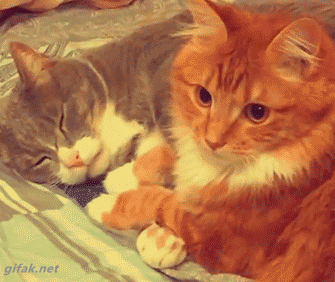
245 posts
Latest Posts by moola-of-hula - Page 5

8.5x11" waterfall watercolor! this was to use up all the leftover paint i squeezed out this morning :P
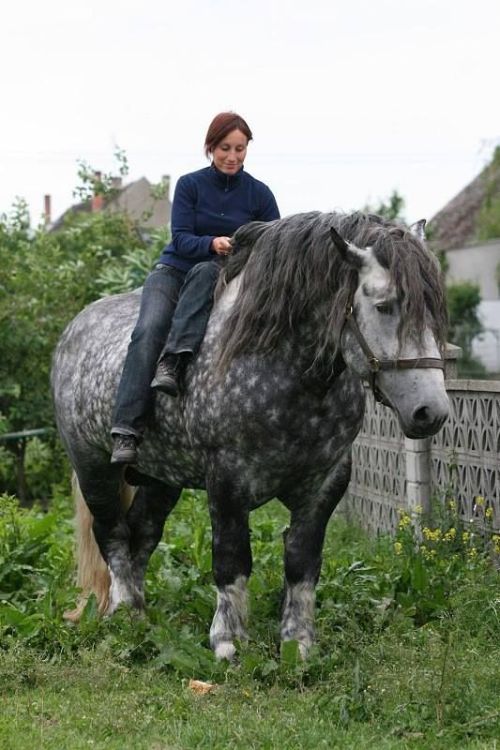
I never made a post about draft horses. :T They are the gentle giants of the horse world, sometimes growing as large as 20 hands and over 2000 lbs. The tallest horse in the world is an American-type Belgian horse named Big Jake (I think???).

A very big (but good) boy!
Despite their size, draft horses are known for their quiet, even temperaments, which make them good work horses. They were originally bred to pull wagons and plows, and they still do that. The most famous draft horses are probably the Budweiser Clydesdales, i.e. the horses in those Superbowl commercials that make us cry every goddamn year.

Draft horses can be ridden, and they are often crossed with lighter breeds, such as Thoroughbreds and Quarter Horses, to create tall, sturdy-boned, quiet sport horses.

Such horses were a common sight during foxhunts, as “hotter” breeds, like Arabians and Thoroughbreds, tend to lose their minds a bit in the chaos of the hunt. Draft horses can also be crossed with Mammoth Jack donkeys to create draft mules, which are also used to pull plows for the Amish.
Mammoth Jack donkey:

Draft Mule:

There are a lot of draft breeds, some more common than others. Many of the common ones are easy to tell apart from the others, but they’re all large-boned and tall, except for the draft ponies, such as Halflingers and Norwegian Fjord horses.
The Belgian
There are two Belgian horses, one that’s popular in Europe and another that’s very common in the US.
This is the European-type “Brabant” Belgian, which tends to be very thick boned and roan in color.
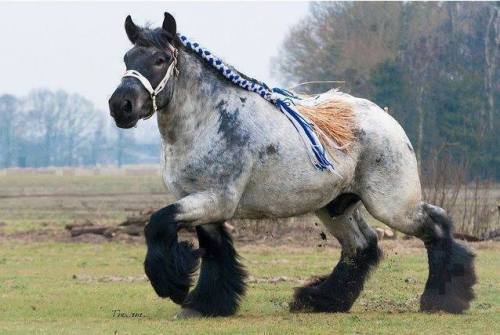
This is the American-type Belgian, which is lighter-boned and always sorrel/palomino in color:

Here is a Brabant Belgian mare pulling some shit:
A lot of draft horses really do enjoy pulling stuff, as much as a horse CAN enjoy doing anything that’s not eating grass and farting. Horse pulls are a common sight in Middle America, often done using Belgian horses. Here’s one of a team pulling 9200 lbs. They pull for a very short period of time, often only a few seconds.
Next up is the Percheron, which has a similar body type to the Belgians but are always black or dapple. They can be slightly more spirited than Belgian horses, with some demonstrating high stepping action.
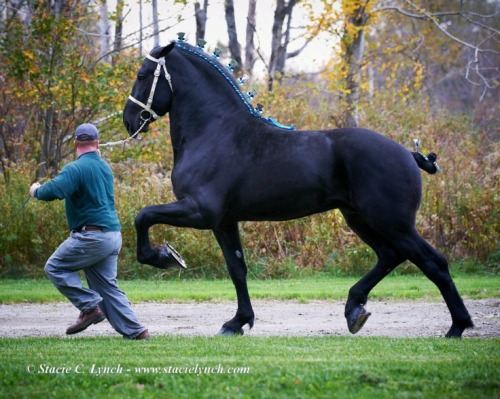
They are not to be confused with Friesians, who have much more “feathered” legs and feet (long hair around the lower legs) and are lighter-boned. Friesians also don’t come in dapple colors, like the horse at the top of this post.
Clydesdales
Clydesdales are recognizable because they are a) always bay colored and b) almost always have four white socks and a blaze on their faces. They also have much more feathering on their legs than Percherons or Belgians. Clydesdales are more common in parades and the like because they tend to be slightly lighter than Percheron and Belgians, and because of this, they’re more agile and “showy”. You probably would not want to plow with a Clydesdale. You could, but their feathering means their feet get dirty much easier than a Belgians might.

Shire Horse
Shires come in a variety of colors, usually black or bay, and they are probably the most “feathered” horses of the popular breeds. They’ve got lots of fur on their feet.

Gypsy Vanner Horses
Gypsy Vanner horses got their start pulling Roma wagons, but now they’re mostly used in fantasy photoshoots, and you can see why. They are beautiful horses, definitely not the type you’d want toiling in the muck. They are almost always paint colored, which distinguishes them from Shire horses.

These are the main, most popular and commonly seen full-sized draft breeds, at least in the US. However, there are also draft ponies, the most popular of which is the Halflinger, which resembles a shrunken Belgian horse. They are ALWAYS sorrel/palomino colored, but their frame can vary. Some Halflingers are lighter-boned and more suitable for riding. Others are thicker-boned and better for pulling.

The other unmistakable draft pony is the Norwegian Fjord, easily recognized by the black stripe in the center of its mane, like a reverse ice cream sandwich.

This can lead to some creative hair cuts

So there you go. That’s a somewhat comprehensive review of draft horse breeds. Here is a size comparison for funsies, with the average riding horse in the middle.
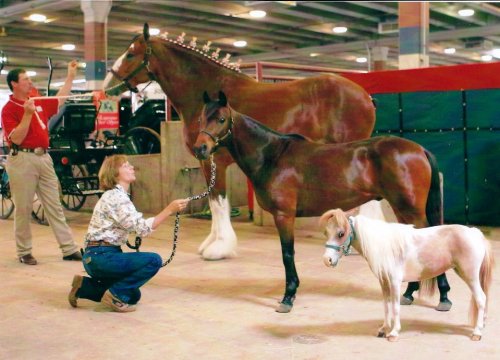
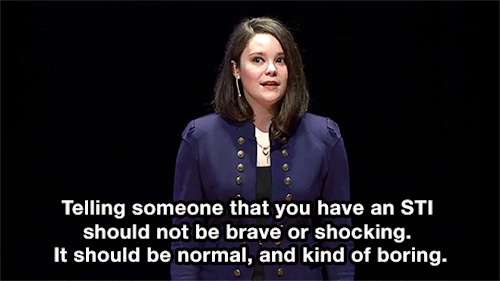

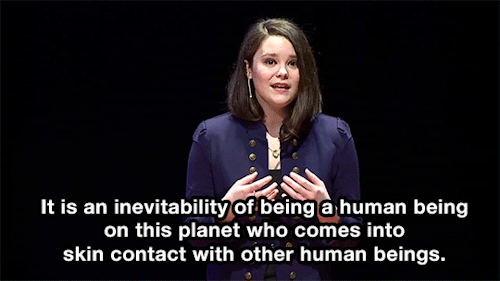

Ella Dawson has genital herpes, and she wants to tell you about it.
She’s not speaking up for the shock value — she’s telling you because she wants all of us to be able to talk about STIs without shame or stigma. When we make it okay to talk about, she says, people are more likely to get tested and less likely to be afraid to share their status.
In her badass talk at TEDxConnecticut College, Ella tells the story of her diagnosis, how she overcame feeling like “human trash,” and why we need to end the stigma — now. It’s packed with information (and a shot of humor), and if you didn’t already agree with her, you will by the time she’s done.
Watch the full talk or read the transcript here.
(Full disclosure: Ella is TED’s social media manager. This post was written by her boss who is so incredibly proud of how fearlessly she speaks out.)
🌸 so sorry for the followers who wanted Victor content 🌸 LOVE YOUR LOVE OF SCIENCE (Vulcan salutes back atcha)! Yup, I definitely get your point about how it may be impossible to apply what we know to be true in this environment to other ones. IT WOULD BE AMAZING IF SCIENTISTS ARE ABLE TO QUANTIFY/UNDERSTAND HOW OTHER ENVIRONMENTS EFFECT STUFF WITH NEW TECH. The only question I have is that if the matter becomes unrecognizable in such an environment, or changes to a certain degree, we would need some sort of deep look into the atomic structure of that object. Or maybe it'll change in a way that it never would in studied environments, (as you said, perhaps absolutely no laws here would apply in such extreme enviornments.) That is such an interesting topic to think about! Like when anthropologist try to study other cultures, they can only present what they understand about that culture through their own cultural view - which will limit them in being able to understand how the culture studied actually functions. So I'd wonder if in such enviornments there may be something going on that we don't even realize is important - or can't measure (like in anthropology if one looked at a culture and not realize the importance of cuticle length for example) So yup, I totally agree with the sentiment that a universal constant law can't exist (since for a constant would need to be unchangeable, and to the best of my non- physicist knowledge there is none) like how would anything be unchangeable? IDK my mind is kinda being blown the more I think about how nothing is ever certain we are just certain about certain things at certain times in certain places. I love how you write about science BTW! Like it's quite simple and it reminds me of my favorite biology teacher's style of writing 😂 (this was probably an odd comment - but she is an amazing teacher)

@moola-of-hula [does the vulcan salute] yo
Keep reading
Yo this is pretty interesting! My idea as a non physisist: I suppose physicists may be trying to apply some sort of grand theory of which they might have a baseline for how everything works under various conditions, I think maybe they are trying to figure out what can work under all conditions and if old laws can be applied in the same way? "Nothing works the way it's supposed to under those conditions" - but isn't it that to some degree it does work, just in a sorta fragmented way? If it is true that all known laws of physics don't work in such exteme environments , then physicists don't have any other laws to apply. Ok all my nonsense here is me guessing that they are trying to determine how stuff works, based on how stuff works elsewhere. Then determining to which degree the workings are changed. And I think this is based on the presumption that there is some sort of "law" that can be applied to all matter. As in, if matter is made of atoms, and the matter still exists in another environment, the matter itself can be used to understand the environment because we know what matter is. GOOD LUCK WITH THE SCIENCE!!!

Keep reading
I hope the answer you need finds its way to you ~
Keep reading
Thank you for writing this @slatestarscratchpad.

For all those who want to take their pulse on their foot, for whichever reason here is how (there are multiple ways, but this was the easiest way for me): "Locate the medial malleolus: 2-3cm below and behind it you should find the posterior tibial pulse. When taking the pulse on your own foot it is easier to use the thumb." http://www.gla.ac.uk/ibls/US/fab/tutorial/generic/sapulse.html ^link where I got the information, as well as additional leg pulse points.
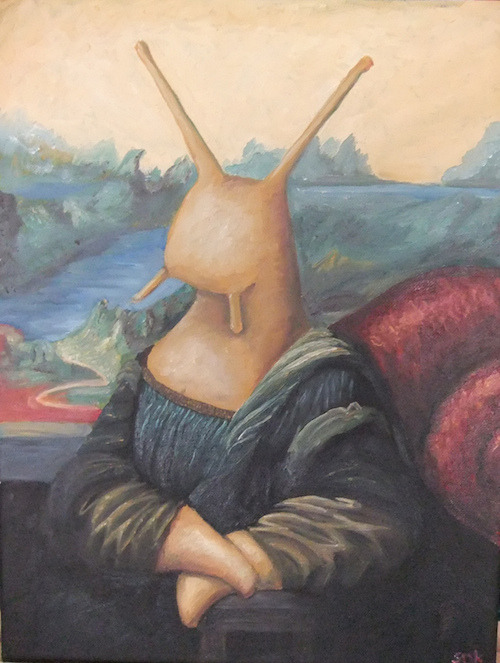






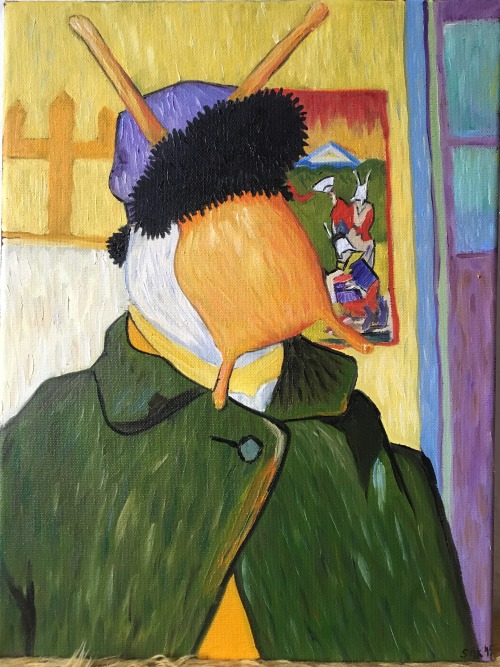

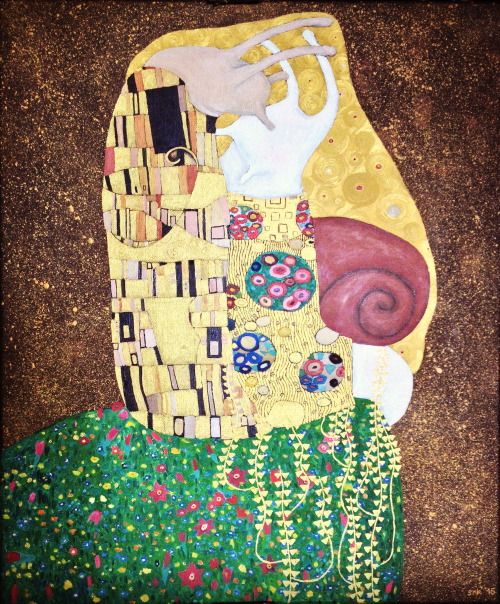
so these are all of my snails’n’slugs paintings by now. better quality is coming soon!
When you hit your elbow against something, but that specific point of your elbow







I learned in a Latin Studies class (with a chill white dude professor) that when the Europeans first saw Aztec cities they were stunned by the grid. The Aztecs had city planning and that there was no rational lay out to European cities at the time. No organization.
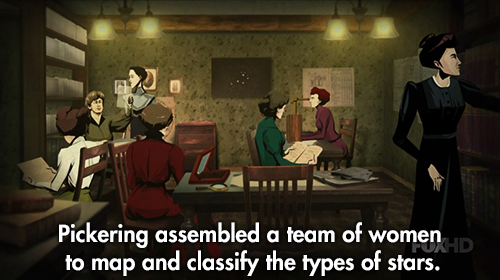
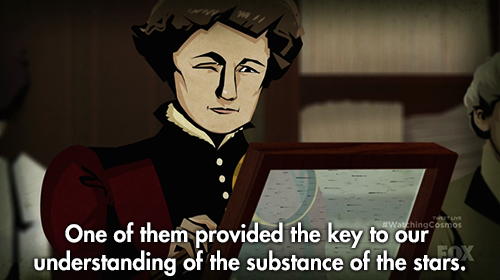
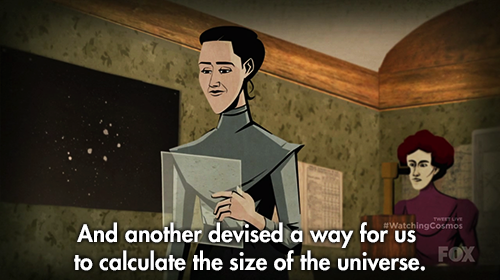
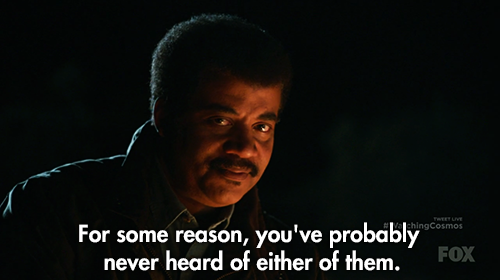
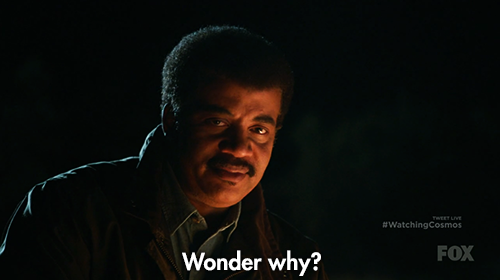
Neil deGrasse Tyson is not impressed with all your sexism.
20+ TED Talks by Women in Computer Science

Here’s a YouTube playlist of 20+ TED talks by women in computer science.
Enjoy!
So important!!!

Pretty!

i only drew myself to find out if i could do it lmao
Ways To Describe Someone's Voice
adenoidal (adj): if someone’s voice is adenoidal, some of the sound seems to come through their nose
appealing (adj): an appealing look/voice shows that you want help, approval, or agreement
breathy (adj): with loud breathing noises
brittle (adj): if you speak in a brittle voice, you sound as if you are about to cry
croaky (adj): if someone’s voice sounds croaky, they speak in a low, rough voice that sounds as if they have a sore throat
dead (adj): if someone’s eyes or voice are dead, they feel or show no emotion
disembodied (adj): a disembodied voice comes from someone who you cannot see
flat (adj): spoken in a voice that does not go up and down; this word is often used for describing the speech of people from a particular region
fruity (adj): a fruity voice or laugh is deep and strong in a pleasant way
grating (adj): a grating voice, laugh, or sound is unpleasant and annoying
gravelly (adj): a gravelly voice sounds low and rough
gruff (adj): this voice has a rough, low sound
guttural (adj): a guttural sound is deep and made at the back of your throat
high-pitched (adj): true to its name, a high-pitched voice or sound is very high
hoarse (adj): someone who is hoarse, or has a hoarse voice, speaks in a low, rough voice, usually because their throat is sore
honeyed (adj): honeyed words or a honeyed voice sound very nice, but you cannot trust the person who is speaking
husky (adj): a husky voice is deep and sounds hoarse (as if you have a sore throat), often in an attractive way
low (adj): a low voice is quiet and difficult to hear; also used for describing a deep voice that has a long wavelength
matter-of-fact (adj): usually used if the person speaking knows what they are talking about (or absolutely think they know what they are talking about)
modulated (adj): a modulated voice is controlled and pleasant to listen to
monotonous (adj): this kind of voice is boring and unpleasant due to the fact that it does not change in loudness or become higher/lower
nasal (adj): someone with a nasal voice sounds as if they are speaking through their nose
orotund (adj): an orotund voice is loud and clear
penetrating (adj): a penetrating voice is so high or loud that it makes you slightly uncomfortable
plummy (adj): a plummy voice or way of speaking is considered to be typical of an English person of a high social class; this word shows that you dislike people who speak like this
quietly (adj): in a soft, quiet voice
raucous (adj): a raucous voice or noise is loud and sounds rough
ringing (adj): a ringing voice is very loud and clear
rough (adj): a rough voice is not soft and is unpleasant to listen to
shrill (adj): a shrill voice is very loud, high, and unpleasant
silvery (adj): this voice is clear, light, and pleasant
singsong (adj): if you speak in a singsong voice, your voice rises and falls in a musical way
small (adj): a small voice is quiet
smoky (adj): a smoky voice is sexually attractive in a slightly mysterious way
softly spoken (adj): someone who is softly spoken has a quiet, gentle voice
soft-spoken (adj): speaking or said in a quiet, gentle voice
sotto voce (adj, adv): in a very quiet voice
stentorian (adj): a stentorian voice sounds very loud and severe
strangled (adj): a strangled sound is one that someone stops before they finish making it
strident (adj): this voice is loud and unpleasant
taut (adj): used about something such as a voice that shows someone is nervous or angry
thick (adj): if your voice is thick with an emotion, it sounds less clear than usual because of the emotion
thickly (adv): with a low voice that comes mostly from your throat
thin (adj): a thin voice or sound is high and unpleasant to listen to
throaty (adj): a throaty sound is low and seems to come from deep in your throat
tight (adj): shows that you are nervous or annoyed
toneless (adj): does not express any emotion
tremulous (adj): if your voice is tremulous, it is not steady; for example, because you are afraid or excited
wheezy (adj): a wheezy noise sounds as if it is made by someone who has difficulty breathing
wobbly (adj): if your voice is wobbly, it goes up and down, usually because you are frightened, not confident, or are going to cry
booming (adj): very loud and attention-getting
quavering (adv): if your voice quavers, it is not steady because you are feeling nervous or afraid
a voice like a foghorn: very loud voice
in an undertone: using a quiet voice so that someone cannot hear you
someone’s dulcet tones: the sound of someone’s voice as they speak
Actually
The question I get the most is how I write characters that feel like real people.
Generally when I’m designing a human being, I deconstruct them into 7 major categories:
1. Primary Drive 2. Fear: Major and Secondary 3. Physical Desires 4. Style of self expression 5. How they express affection 6. What controls them (what they are weak for) 7. What part of them will change.
1. Primary Drive: This is generally related to the plot. What are their plot related goals? How are they pulling the plot forward? how do they make decisions? What do they think they’re doing and how do they justify doing it. 2. Fear: First, what is their deep fear? Abandonment? being consumed by power? etc. Second: tiny fears. Spiders. someone licking their neck. Small things that bother them. At least 4. 3. Physical desires. How they feel about touch. What is their perceived sexual/romantic orientation. Do their physical desires match up with their psychological desires.
4. Style of self expression: How they talk. Are they shy? Do they like to joke around and if so, how? Are they anxious or confident internally and how do they express that externally. What do words mean to them? More or less than actions? Does their socioeconomic background affect the way they present themselves socially? 5. How they express affection: Do they express affection through actions or words. Is expressing affection easy for them or not. How quickly do they open up to someone they like. Does their affection match up with their physical desires. how does the way they show their friends that they love them differ from how they show a potential love interest that they love them. is affection something they struggle with?
6. What controls them (what they are weak for): what are they almost entirely helpless against. What is something that influences them regardless of their own moral code. What– if driven to the end of the wire— would they reject sacrificing. What/who would they cut off their own finger for. What would they kill for, if pushed. What makes them want to curl up and never go outside again from pain. What makes them sink to their knees from weakness or relief. What would make them weep tears of joy regardless where they were and who they were in front of.
7. WHAT PART OF THEM WILL CHANGE: people develop over time. At least two of the above six categories will be altered by the storyline–either to an extreme or whittled down to nothing. When a person experiences trauma, their primary fear may change, or how they express affection may change, etc. By the time your book is over, they should have developed. And its important to decide which parts of them will be the ones that slowly get altered so you can work on monitoring it as you write. making it congruent with the plot instead of just a reaction to the plot.
That’s it.
But most of all, you have to treat this like you’re developing a human being. Not a “character” a living breathing person. When you talk, you use their voice. If you want them to say something and it doesn’t seem like (based on the seven characteristics above) that they would say it, what would they say instead?
If they must do something that’s forced by the plot, that they wouldn’t do based on their seven options, they can still do the thing, but how would they feel internally about doing it?
How do their seven characteristics meet/ meld with someone else’s seven and how will they change each other?
Once you can come up with all the answers to all of these questions, you begin to know your character like you’d know one of your friends. When you can place them in any AU and know how they would react.
They start to breathe.
How to read a scientific paper
Step 1: begin at the beginning
read the title
get excited for cool science
note the authors
get mad at them for having more papers than you
spend ten minutes wondering if you’d have been better off going to whatever institution they’re at
die a little inside
Step 2: the abstract and introduction
read the abstract
skip right to the introduction because you’re not completely sure what they’re talking about and maybe that will clear it up
alright now we’re talking
understand the entire first paragraph of the introduction
mostly get the second and third paragraphs
skip over the technical bit at the end because boring
Step 3: the results (aka the good stuff)
read the first paragraph
really not get what’s being said
skip right to figure 1
read the figure caption
call it good, you got the jist
repeat for the remaining figures
Step 4: give up
this paper really isn’t answering the question you had in the first place
you’ll just cite it later it’s fine
Step 5: keep doing science!
fail because of some unexpected and puzzling problem
spend 2-6 weeks troubleshooting and getting nowhere
decide to do another literature search to see if anyone else has had this issue
find the same paper you read before cited a bunch
Step 6: reread
actually like read it this time
get to the end
find the answer to your question
die a little inside
wonder why you didn’t just read it fully to begin with and save yourself weeks of work
Step 7: follow citations to another paper that looks relevant
repeat entire cycle
wonder why science is so hard
have you ever watched your peers win the scholarships you've also applied to (and get rejected in) and feel just... really worthless? especially if you put in a lot of effort. Sometimes it's discouraging to think there's always someone out there that's much smarter than you. You don't have to reply, I just felt like venting haha.
Good evening, anonymous! Thanks for the ask!
I’ve been in similar situations many times, and it’s Not A Great Feeling. Although you asked about scholarship applications, I hope you don’t mind if I talk about application rejections more generally.
First off, some of my more recent rejection experiences include…
During my first wave of graduate school applications, I was rejected unanimously. It was extremely discouraging. (Contrast this with my second wave of graduate school applications a year later, wherein I was unanimously accepted and received several amazing financial offers.)
Because my subfield is financially-limited, there’s a lot of people applying for a very finite pool of money. Of course, my research group needs funding if it’s going to keep doing science, meaning rejection is an expected part of the process.
I’ve been rejected many times over by certain research-relevant summer schools that my colleagues have attended.
And so, with these experiences in mind, I’d like to provide some…
~Advice For When Your Application Gets Rejected~
Rejection in general can be extremely painful, disappointing, and discouraging. Then add the pressure of that rejection impacting your future? Cue heartbreak.
Here are several facts that help me maintain my spirits through repeated rejections. For instance, when it comes to the persons who evaluate applications, I keep in mind that…
They survey a TON of people. As a result, they end up with a larger number of qualified applicants than they have available spots. Being rejected doesn’t mean you weren’t qualified. I know plenty of hyper-qualified individuals who get rejected simply because of the luck of the draw.
They observe only a FRACTION of you. Applications are necessarily finite, so reviewers don’t get to evaluate the whole of you. Rejection of your application is not a rejection of you. You are so so SO much more than an application.
Furthermore,
An application rejected by certain reviewers might be accepted by others, and vice-versa. Consequently, if you get a rejection and someone else gets an acceptance that does NOT mean they’re better than you. An application can’t enable judgments of that complexity.
You are growing and changing every day: the pieces of you that go into an application can be improved upon or reworked for future applications. Rejection can inform you what areas you might try to focus on in the future.
Finally, my most IMPORTANT piece of advice is to keep in mind that…
~even the strongest applicant will receive rejections~
There’s an element of luck whenever you apply for anything. That’s the nature of these systems and it’s not your fault.
Remember:
Success isn’t a matter of always succeeding, but persevering until you do.
Best wishes, my anonymous friend.
have you ever watched your peers win the scholarships you've also applied to (and get rejected in) and feel just... really worthless? especially if you put in a lot of effort. Sometimes it's discouraging to think there's always someone out there that's much smarter than you. You don't have to reply, I just felt like venting haha.
Good evening, anonymous! Thanks for the ask!
I’ve been in similar situations many times, and it’s Not A Great Feeling. Although you asked about scholarship applications, I hope you don’t mind if I talk about application rejections more generally.
First off, some of my more recent rejection experiences include…
During my first wave of graduate school applications, I was rejected unanimously. It was extremely discouraging. (Contrast this with my second wave of graduate school applications a year later, wherein I was unanimously accepted and received several amazing financial offers.)
Because my subfield is financially-limited, there’s a lot of people applying for a very finite pool of money. Of course, my research group needs funding if it’s going to keep doing science, meaning rejection is an expected part of the process.
I’ve been rejected many times over by certain research-relevant summer schools that my colleagues have attended.
And so, with these experiences in mind, I’d like to provide some…
~Advice For When Your Application Gets Rejected~
Rejection in general can be extremely painful, disappointing, and discouraging. Then add the pressure of that rejection impacting your future? Cue heartbreak.
Here are several facts that help me maintain my spirits through repeated rejections. For instance, when it comes to the persons who evaluate applications, I keep in mind that…
They survey a TON of people. As a result, they end up with a larger number of qualified applicants than they have available spots. Being rejected doesn’t mean you weren’t qualified. I know plenty of hyper-qualified individuals who get rejected simply because of the luck of the draw.
They observe only a FRACTION of you. Applications are necessarily finite, so reviewers don’t get to evaluate the whole of you. Rejection of your application is not a rejection of you. You are so so SO much more than an application.
Furthermore,
An application rejected by certain reviewers might be accepted by others, and vice-versa. Consequently, if you get a rejection and someone else gets an acceptance that does NOT mean they’re better than you. An application can’t enable judgments of that complexity.
You are growing and changing every day: the pieces of you that go into an application can be improved upon or reworked for future applications. Rejection can inform you what areas you might try to focus on in the future.
Finally, my most IMPORTANT piece of advice is to keep in mind that…
~even the strongest applicant will receive rejections~
There’s an element of luck whenever you apply for anything. That’s the nature of these systems and it’s not your fault.
Remember:
Success isn’t a matter of always succeeding, but persevering until you do.
Best wishes, my anonymous friend.
Medical School Interviews
Across the UK hopeful medics will have sent off their applications and are eagerly awaiting for an interview. Considering I was in the same position a literal year ago I thought I would share some advice for the interviews. Unfortunately, I can’t disclose what interview questions I got but I can give some general tips that really helped me.
First, I thought I would give some background to my application. I applied to 4 medical schools that were all MMI so the advice I am about to give is more geared towards MMI style interviews. I was very fortunate to get 3 interviews and 3 offers for medicine.
Look at the Medical Schools website. Each medical school tends to outline the qualities they are looking for at interview on their website. Think of specific examples for each quality and practice how you have used/developed said quality and why this would make you a good doctor.
Stay away from Student Room. The number of people that told me to stay away from student room was enormous and yet I still ignored them and checked. All it does is scare you and makes you panic. It’s not worth the stress at all. Just focus on your application and nobody else’s.
Be professional. Medical schools really value professionalism and teach it throughout medical school. However, there is the expectation for you to have a certain level of professionalism before you enter medical school. Little things such as what you wear can make a big impact. For example, guys tended to wear suits at the interview however it isn’t necessary to as long as you are dressed smart then it is okay. Arrive on time. It looks really bad if you arrive late to your interview and you will also probably be really stressed as well which won’t help at all. If you are going to be late ring the medical school well in advance.
Some interviewers may be mean. I wish someone had told me this. Interviewers are there to test certain skills and therefore may be appear to be really brutal to you. Remember, that is what they are there for, stay calm and prove to them that you can handle it. This is essential as not every patient is going to be compliant and they need to test that you are able to cope with it.
Stay up to date with the news. When I had my interviews, the junior doctor contract was very hot in the news so I read around the topic. However, medical schools expect that of you and will probably not test you about that as it doesn’t really show anything that makes you stand out. But keeping up to date with scientific advancements in the medical field will put you in good stead.
Be honest. I think this is probably the most important tip I have. If you do not know something, then tell them that you don’t know it. The person asking will probably have a lot of expertise on the subject and will be able to tell when you are waffling. A lot of the time they are trying to see if you are brave enough to say you do not know rather than seeing if you actually do know something on that topic. Remember that a responsible doctor is one that stays within their limits and admits that they do not know something. If you are quite competent on the subject, then do talk about it however do not feel pressured to have a conversation with them about it.
So there are all my general tips! I just want to finish with saying that please don’t worry if you mess up a station. MMIs typically have 7/8 stations, you are judged on all the stations not just one, so take a deep breath and smash the other ones. If anyone has any questions regarding interviews just send me a message.
Good luck to everyone applying!
Medical School Interviews
Across the UK hopeful medics will have sent off their applications and are eagerly awaiting for an interview. Considering I was in the same position a literal year ago I thought I would share some advice for the interviews. Unfortunately, I can’t disclose what interview questions I got but I can give some general tips that really helped me.
First, I thought I would give some background to my application. I applied to 4 medical schools that were all MMI so the advice I am about to give is more geared towards MMI style interviews. I was very fortunate to get 3 interviews and 3 offers for medicine.
Look at the Medical Schools website. Each medical school tends to outline the qualities they are looking for at interview on their website. Think of specific examples for each quality and practice how you have used/developed said quality and why this would make you a good doctor.
Stay away from Student Room. The number of people that told me to stay away from student room was enormous and yet I still ignored them and checked. All it does is scare you and makes you panic. It’s not worth the stress at all. Just focus on your application and nobody else’s.
Be professional. Medical schools really value professionalism and teach it throughout medical school. However, there is the expectation for you to have a certain level of professionalism before you enter medical school. Little things such as what you wear can make a big impact. For example, guys tended to wear suits at the interview however it isn’t necessary to as long as you are dressed smart then it is okay. Arrive on time. It looks really bad if you arrive late to your interview and you will also probably be really stressed as well which won’t help at all. If you are going to be late ring the medical school well in advance.
Some interviewers may be mean. I wish someone had told me this. Interviewers are there to test certain skills and therefore may be appear to be really brutal to you. Remember, that is what they are there for, stay calm and prove to them that you can handle it. This is essential as not every patient is going to be compliant and they need to test that you are able to cope with it.
Stay up to date with the news. When I had my interviews, the junior doctor contract was very hot in the news so I read around the topic. However, medical schools expect that of you and will probably not test you about that as it doesn’t really show anything that makes you stand out. But keeping up to date with scientific advancements in the medical field will put you in good stead.
Be honest. I think this is probably the most important tip I have. If you do not know something, then tell them that you don’t know it. The person asking will probably have a lot of expertise on the subject and will be able to tell when you are waffling. A lot of the time they are trying to see if you are brave enough to say you do not know rather than seeing if you actually do know something on that topic. Remember that a responsible doctor is one that stays within their limits and admits that they do not know something. If you are quite competent on the subject, then do talk about it however do not feel pressured to have a conversation with them about it.
So there are all my general tips! I just want to finish with saying that please don’t worry if you mess up a station. MMIs typically have 7/8 stations, you are judged on all the stations not just one, so take a deep breath and smash the other ones. If anyone has any questions regarding interviews just send me a message.
Good luck to everyone applying!




![[x]](https://64.media.tumblr.com/bdb284ce068fbc02f82b28fb93c90d18/tumblr_o81u2skznM1qiz5q7o1_1280.png)
